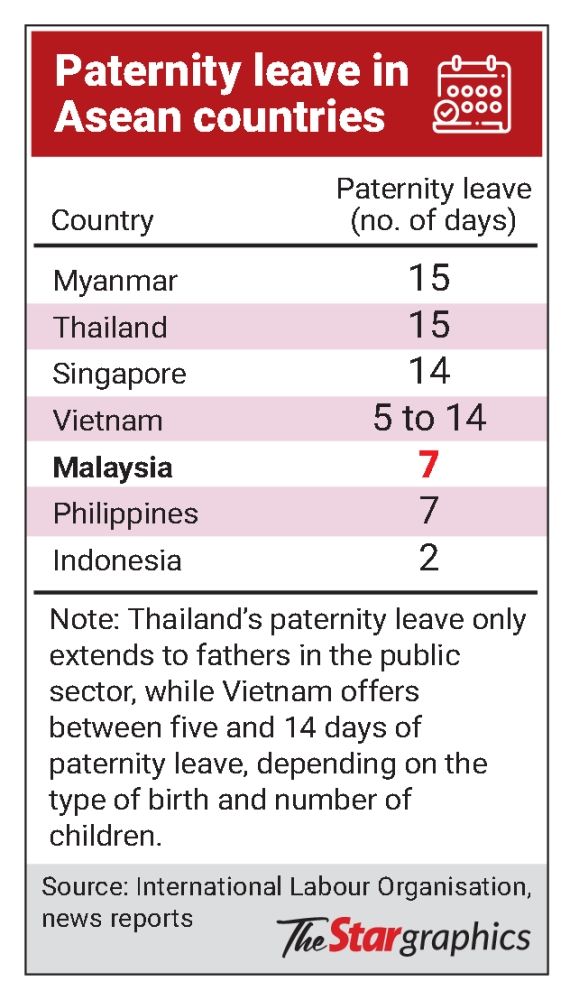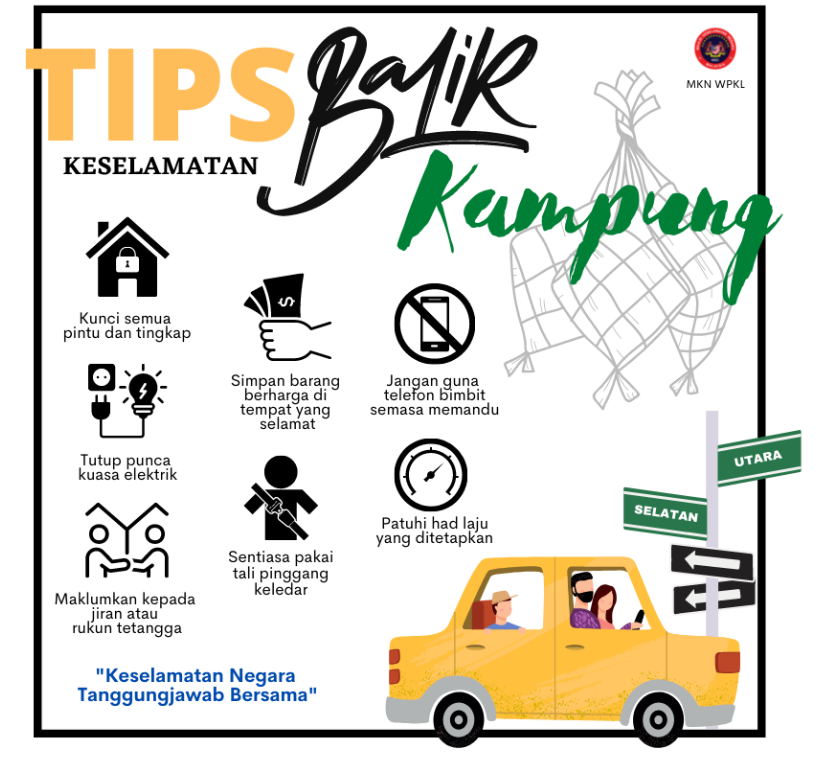|

PETALING JAYA, 19 Jun 2023- More flexibility should be given to working fathers, including the option of longer paternity leave based on any underlying condition of the newborn or mother, say experts.
Prof Dr Rumaya Juhari of the Universiti Putra Malaysia’s (UPM) Department of Human Development and Family Studies said it is important to consider the health and other aspects of the mother and child when considering how long the father needs to be present after childbirth.
“The demand for post-partum care will be different based on many factors such as the type of delivery, and health status of the mother and infant.
“Some newborns will also face complications, which require extra days of hospitalisation,” she said, adding that the presence of other children as well as other support systems in the household also need to be considered.
“The more complicated the contextual factors are, the higher the demand for the fathers to be present to ensure the well-being of both mother and child,” she said.
“Most likely, longer paternity leave will be very helpful.”
Malaysia extended paternity leave from three to seven days earlier this year.
Among Asean countries, Myanmar and Thailand have the longest paternity leave at 15 days, while Singapore allocates 14 days, according to the International Labour Organisation (ILO).
However, Thailand’s paternity leave only extends to fathers in the public sector.
Vietnam offers five to 14 days of paternity leave, depending on the type of birth and number of children.
The Philippines, like Malaysia, offers a week-long paternity leave.
Malaysia’s current seven-day paternity leave, however, has yet to be enforced in Sabah and Sarawak, though the Sabah government has agreed to amend an article under the Sabah Labour Ordinance in order to implement the policy.
This was done following an incident where a woman reportedly died four days after giving birth, with her husband claiming he was not granted seven days’ paternity leave to take care of her.
Meanwhile, fathers in Indonesia have the shortest paternity leave of three days, while Cambodian fathers are not entitled to any paid statutory paternity leave, but can use their annual leave entitlement of up to seven days.
Prof Rumaya suggested that on top of the country’s existing seven days’ paternity leave, employees should be given an option of an additional seven days that can be used sporadically throughout the remaining days of the wife’s confinement and the months after.
“This can be for hospital visits or other relevant needs. In the period of three to four months, adjustments are really needed so with time off work for the father, couples can plan for the transitioning phase where the mother has to return to work,” she said.
She added that fathers should also learn more about newborns and infancy, their developmental milestones, observe the schedule for hospital trips and vaccinations, as well as do things to ensure the spouse is comfortable and motivated to do her part in the parenting process.
Universiti Kebangsaan Malaysia’s Critical Media Studies Assoc Prof Dr Jamaluddin Aziz said most countries that offer paternity leave longer than three weeks and up to 14 weeks are high-income nations.
Countries such as South Korea, Japan, France, Portugal and many other European nations stand out for providing father-specific parental and homecare leave with a duration of between five and 52 weeks.
He said the length of paternity leave should depend on an individual’s situation, such as the type of birth, any complications, and the condition of the newborn.
“If the wife is suffering from postpartum depression, longer paternity leave, either paid or unpaid, should be made accessible,” said Jamaluddin.
“In some countries, parental leave granted for mothers can also be transferred to the father. This will help women transition back into their work.”
He added that one of the father’s roles after childbirth is to do all household chores, which willallow the mother to get enough rest to recuperate.
Chai Sen Tyng, a senior research officer at UPM’s Malaysian Research Institute on Ageing, said while paternity leave in Malaysia must be utilised in one consecutive stretch, several countries are more flexible.
They allow parental leave to be taken in several stretches of time periods to support working couples to adjust to early childhood rearing responsibilities.
He said countries such as Sweden offer much longer parental leave which can be utilised by either parent.
“The household dynamics are pretty varied, and when you consider the challenges of breastfeeding and early childcare, we should put the discussion up for stronger parental leave rather than just arguing which parent should have more leave.
“I think there is no debate the priority here are the mothers and newborns.
“Men need to do a lot more than just bring home the pay cheque. In dual-income families, there are many new roles to fill and to share,” Chai said.
Author- Prof. Dr. Rumaya Juhari, Department of Human Development and Family Studies, Faculty of Human Ecology, UPM
|































